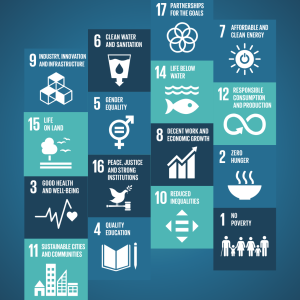Indikatoren in dieser Dimension analysieren, inwieweit Migrantinnen und Migranten hinsichtlich des Zugangs zu grundlegenden sozialen Diensten wie Gesundheit, Bildung und soziale Sicherheit den gleichen Status wie Bürgerinnen und Bürger haben. Es beschreibt die Rechte von Migrantinnen und Migranten auf Familienzusammenführung, Arbeit, Aufenthalt und Staatsbürgerschaft. Die Ratifizierung der wichtigsten internationalen Konventionen fällt ebenfalls in diesen Bereich.main.
Indikatoren in dieser Dimension bewerten die institutionellen, rechtlichen und regulatorischen Rahmenbedingungen der Länder im Zusammenhang mit Migrationspolitik. Dimension 2 beinhaltet auch das Vorhandensein von nationalen Migrationsstrategien, die mit Entwicklungspolitik und -ansätzen im Einklang stehen, sowie die institutionelle Transparenz und Kohärenz in Bezug auf Migrationsmanagement. In diesem Bereich wird auch untersucht, inwieweit Regierungen Migrationsdaten erheben und verwenden.
Diese Dimension konzentriert sich auf die Bemühungen von Ländern, in migrationsbezogenen Fragen mit anderen Staaten und einschlägigen nichstaatlichen Akteuren, einschließlich Organisationen der Zivilgesellschaft und des Privatsektors, zusammenzuarbeiten. Kooperation kann zu Verbesserungen der Regierungsführung führen, indem Standards angeglichen und angehoben, der Dialog intensiviert und Strukturen der Bewältigung von Herausforderungen geschaffen werden.
Diese Dimension umfasst Indikatoren für die Politik der Länder zur Steuerung des sozioökonomischen Wohlergehens von Migrantinnen und Migranten, z.B. die Anerkennung der Bildungs- und Berufsqualifikationen von Migrantinnen und Migranten, Bestimmungen zur Regelung der Studentenmigration und das Bestehen bilateraler Arbeitsabkommen zwischen Ländern. Die Indikatoren konzentrieren sich gleichermaßen auf Maßnahmen und Strategien im Zusammenhang mit dem Engagement der Diasporamitglieder und den grenzüberschreitenden Geldtransfers von Migrantinnen und Migranten
Diese Dimension befasst sich mit der Art und dem Grad der Bereitschaft von Ländern, wenn sie mit Mobilitätsdimensionen von Krisen konfrontiert sind, die entweder mit Katastrophen, der Umwelt und/oder Konflikten zusammenhängen. Die Fragen werden verwendet, um die Prozesse für Staatsangehörige und Ausländer sowohl während als auch Katastrophen zu ermitteln, einschließlich der Frage, ob humanitäre Hilfe für Migrantinnen und Migranten genauso verfügbar ist wir für Bürgerinnen und Bürger.
Diese Dimension analysiert den Ansatz der Länder zum Migrationsmanagement bezüglich Grenzkontroll- und Grenzschutzmaßnahmen, Zulassungsvoraussetzungen für Migranten, Vorbereitung und Flexibilität bei erheblichen und unerwarteten Wanderungsbewegungen sowie die Bekämpfung des Menschenhandels und des Menschenschmuggels von Migrantinnen und Migranten. Es werden auch die Bemühungen und Anreize zur Unterstützung der Integration der zurückkehrenden Staatsbürgerinnen und -burger bewertet.
This country Profile describes examples of well-developed areas of the Republic of the Marshall Island’s (hereinafter referred to as The Marshall Islands) migration governance structures and areas with potential for further development, as evaluated through the six domains of the Migration Governance Indicators (MGI). These address migrants’ rights, a “whole-of-government” approach, partnerships, socioeconomic well-being of migrants, the mobility dimensions of crises, and safe and orderly migration.
Click the icons on the wheel to explore the key findings.
The Migration Governance Indicators (MGI) initiative is a policy-benchmarking programme led by the International Organization for Migration (IOM) and implemented with research and analysis from the Economist Intelligence Unit. Funding is provided by IOM Member States.
Migration Governance: examples of well-developed areas
- Migrants, without any distinction based on nationality or residency status, have access to Government-funded health services under the same conditions as nationals.
- All migrants have the same access to public education services as nationals regardless of their migratory status.
- The Marshall Islands has an agreement since 1999 with New Zealand on the portability of social security entitlements and earned benefits.
- Marshallese nationals residing abroad can vote in national and local elections.
Areas with potential for further development
- The Marshall Islands gives its citizens preferential treatment in the selection and placement of trainees for vocational training.
- The country does not issue indefinite residence permits or recognize any status comparable to permanent residency.
- There is no specific policy or strategy in place to combat hate crimes, violence, xenophobia or discrimination against migrants.
Migration Governance: examples of well-developed areas
- The Immigration Act (2006) streamlines the requirements for the issuance of visas and permits, clarifies procedures for the removal of persons who enter the Marshall Islands unlawfully, and regulates the enforcement of immigration laws.
- The Marshall Islands provides clear, transparent, and easily accessible rules and regulations on immigration procedures.
- The latest Population and Housing Census conducted in 2021 included some questions on migration.
Areas with potential for further development
- There are no government agencies or departments responsible for designing and coordinating the implementation of an overarching migration policy or strategic plan.
- There is no interministerial coordination mechanism on migration issues, but coordination takes place on an ad hoc basis.
- The Marshall Islands does not collect and publish migration-related data on a regular basis.
Migration Governance: examples of well-developed areas
- The country participates in different regional consultative processes such as the Pacific Immigration Development Community, the Pacific Islands Development Forum and the Pacific Islands Forum Secretariat.
- The Marshall Islands signed the Compact of Free Association (1983, amended in 2003) with the United States whereby its citizens and their immediate relatives have the right to reside and work indefinitely in the United States and its territories without the need for any visa or permit.
Areas with potential for further development
- The Government has not signed migration-specific memorandums of understanding with other countries, nor does it participate in bilateral migration-related negotiations or discussions.
- The private sector was involved in reviewing immigration legislation only on an ad hoc basis through invitations to public hearings during the drafting process.
Migration Governance: examples of well-developed areas
- Non-resident workers may be recruited to supplement the local labour force with available and qualified workers for professions that lack suitably qualified Marshallese workers.
- The Immigration Act (2006) accounts for different types of permits to attract specific labour skills.
- The Marshall Islands participates in the Pacific Qualifications Framework (PQF) and the Pacific Register of Qualifications and Standards (PRQS) that enable the benchmarking and recognition of specific qualifications.
Areas with potential for further development
- There is no national assessment for monitoring the labour market demand for immigrants, the domestic labour supply, and the effects of emigrants on the domestic labour market in the Marshall Islands.
- There are no specific measures in place to promote gender equality for migrants in the labour force.
- There are no mechanisms to protect the rights of nationals working abroad.
- The Marshall Islands does not actively promote the creation of formal remittance schemes.
Migration Governance: examples of well-developed areas
- The soon-to-be adopted National Adaptation Plan includes the relocation of communities from the outer islands to larger islands and the elevation of some of the islands to keep them habitable.
- Communication systems for the public to receive information on the evolving nature of crises are available in Marshallese and English and during large-scale disasters in Mandarin and Tagalog additionally.
- The Marshall Islands makes some exceptions to immigration procedures for migrants whose country of origin is experiencing crisis.
Areas with potential for further development
- The Marshall Islands does not have a strategy with specific measures to assist migrants before, during or after crises.
- There are no specific measures in place to assist nationals living abroad during crises.
- Migration issues are not explicitly addressed in the Marshall Islands’ recovery strategies.
Migration Governance: examples of well-developed areas
- The Marshall Islands has a system in place to monitor visa overstays.
- The National Task Force on Human Trafficking leads anti-trafficking efforts and includes government, non-governmental and international organizations as members.
- The Prohibition of Trafficking in Persons Act (2017) establishes measures to combat migrant labour exploitation by criminalizing trafficking in persons in the Marshall Islands.
Areas with potential for further development
- Border staff receive training only on an ad hoc basis.
- There are no policies or strategies to ensure that migrant detention is used only as a measure of last resort.
- The Government collects data on trafficking cases and its counter-trafficking activities, but it does not systematically publish these.
2022 Dezember



